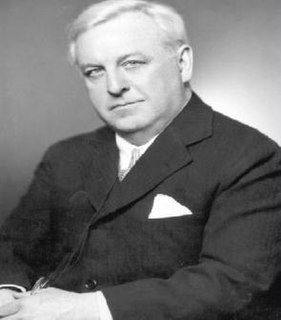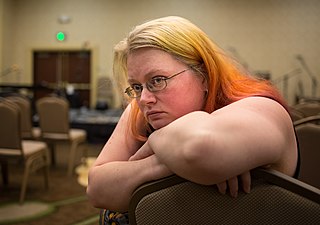A Quote by Neil Gaiman
I suppose I could claim that I had suspected that the world was a cheap and shoddy sham, a bad cover for something deeper and weirder and infinitely more strange, and that, in some way, I already know the truth. But I think that's just how the world has always been. And even now I know the truth, the world still seems cheap and shoddy. Different world, different shoddy, but that's how it feels.
Related Quotes
We are entering a hyperconnected world where every boss now has more access, cheap access to cheap labor, cheap genius, cheap robot, cheap software, and then this world averages over. There is only one answer to that, and that is to get everyone as close as possible to some form of post-secondary education, it could be vocational, it can be liberal arts, it can be science and technology.
From early childhood, I was interested in understanding how the world worked, and assumed I would be some kind of physical scientist or chemist. But the truth was, I didn't know there was another kind of world, the inner world, that was just as interesting, if not more relevant, than what was going on in the outside world.
It is hubris, claim the critics of 'absolutism', to suppose that we could ever even approximate to a true description of how the world anyway is. It is bad faith or 'bullshit', respond 'absolutists', to suppose - as the rhetoric of postmodernism implies - that we could seriously live and act with the thought that truth and value are simply our own projections. An attractive feature of 'ineffabilism', as I see it, is that it evades these accusations.
There's a truth deeper than experience. It's beyond what we see, or even what we feel. It's an order of truth that separates the profound from the merely clever, and the reality from the perception. We're helpless, usually, in the face of it; and the cost of knowing it, like the cost of knowing love, is sometimes greater than any heart would willingly pay. It doesn't always help us to love the world, but it does prevent us from hating the world. And the only way to know that truth is to share it, from heart to heart, just as Prabhakar told it to me, just as I'm telling it to you now.
This is what I do know: A lie, however well-intended, can't prepare you for reality or change the world... To tell the truth is to provide armament against a world too full of cruelties to be defeated with simple falsehoods... It seems to me we owe the world--more, we owe ourselves--the exchange of comfort for the chance that maybe the truth can do what people always say it can. The truth may, given the opportunity, set us free.
The point I would make is that the novelist and the historian are seeking the same thing: the truth – not a different truth: the same truth – only they reach it, or try to reach it, by different routes. Whether the event took place in a world now gone to dust, preserved by documents and evaluated by scholarship, or in the imagination, preserved by memory and distilled by the creative process, they both want to tell us how it was: to re-create it, by their separate methods, and make it live again in the world around them.


































